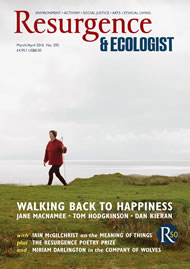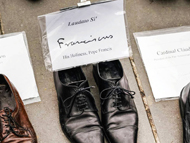The echo of the gavel was still resounding in the plenary and COP21 was being declared historic. Finalising any sort of deal seemed like a miracle, but such is the lumbering nature of the UN process that we have come to thank heaven for small mercies. Whilst delegates applauded and smiled for selfies, grass-roots groups were lining up to denounce the terms of the text. The activist and writer Naomi Klein, author of This Changes Everything: Capitalism vs. The Climate, declared that the planet’s leaders had shown themselves willing to “set our world on fire”.
But if there is one thing that felt historic, COP21 was when the climate justice movement came of age. Groups that previously would not have aligned with the climate movement are marching behind the same banners, as climate change is spoken of less as an isolated issue, and more as one symptom of a rapacious capitalism that perpetuates injustice. If the scant framework of the Paris treaty is to become something genuinely ambitious, then it is this diverse, citizen-led movement of movements that is going to put the flesh on the bones. Here are three from the US:
Iraq Veterans Against the War
“I’ve seen pollution from billions of bullet casings, generators and diesel engines, depleted uranium and white phosphorus causing cancer and birth defects and contaminating the water,” Derek Matthews, a US Marine Corps veteran, said. “How can we solve climate change without challenging the biggest polluters and destroyers of this Earth? Extractive economies and climate change are only possible when protected by guns and militarism.”
Shawna Foster served in the US National Guard as a nuclear, biological and chemical weapons specialist. “You can’t go over and bomb another country if you think that they’re the same culture as yours,” she said. “Just like you can’t go over and take other people’s resources if you respect their own inherent worth and dignity. Being anti-racist in our approach starts to undo climate change, and it starts to undo the military.
“It isn’t even a ‘let’s save the polar bears’ kind of solution. It’s a just transition. Recognising that people like veterans, who have no economic opportunity, need a job that isn’t killing people. They need a job that isn’t defending war profiteering. They need a job that isn’t about oil extraction. That is about building an economy for people and the planet.”
Historical Black Colleges and Universities
“A lot of the talks, they lack equity,” said Adria Peterkin. “They lack the idea of environmental justice. You have to talk about refugees; you have to talk about so many different aspects. The talks are only about how to lower the actual emissions, but it’s so much more than that as well.”
“The conference isn’t really representative of a lot of the people we would consider frontline communities,” agreed Jenise Young. “People who are marginalised, who have a historical trend and pattern of more than 50, 60 years of living in these communities. I live in Houston, Texas, and you can only imagine the families that have had generations around these polluting facilities.”
Indigenous Environmental Network
“In the United States they are killing our Indigenous people in the name of taking fossil fuels out of the ground,” said Kandi Mossett of the Mandan, Hidatsa and Arikara nations, North Dakota. “Here at COP21 they are proposing false solutions to the climate crisis. They are proposing a commodification of the sacred. They want to put a price on the air we breathe... Our babies are dying. They can’t even breathe the air. We need to fight back. We are the frontline. We are the red line. And we will protect our blood lines. We are the solution.”
“I’m telling you that in my area of northern Oklahoma, ConocoPhillips [the US oil and gas company] is killing us,” said Casey Camp-Horinek of the Ponca Nation. “We’re suffering from environmental genocide. Our babies sometimes aren’t making it to birth. Fracking has created a situation where we are now the earthquake capital of the world. We come here with a blessing for Paris. We know what happened on 13 November [the gun and bomb attacks in Paris], and I can tell you that we Indigenous people know how that feels. To have someone kill the innocent ones. To have someone not care about life itself.”
Paris is being seen as a stepping stone for the building of momentum. Via Campesina, a network of more than 200 million peasant farmers, is challenging big agribusiness and how we think about food. “No land, no farmer,” Mahamadou Fayinkeh, from Gambia, told me. “No farmer, no food. No food, no life. Simple. The answer to the COP21.”
Indigenous people are finding they share the same cause, resisting development on their ancestral lands and protecting the environment for future generations. Youth groups, faith groups, trade unions, women’s groups: there is a sense post-Paris that the struggle is across the spectrum. In May, an alliance spanning continents will be targeting and shutting down some of the world’s largest fossil-fuel projects in more than a dozen countries, aiming to translate the words of Paris into a lasting legacy.
For more information see www.breakfree2016.org








